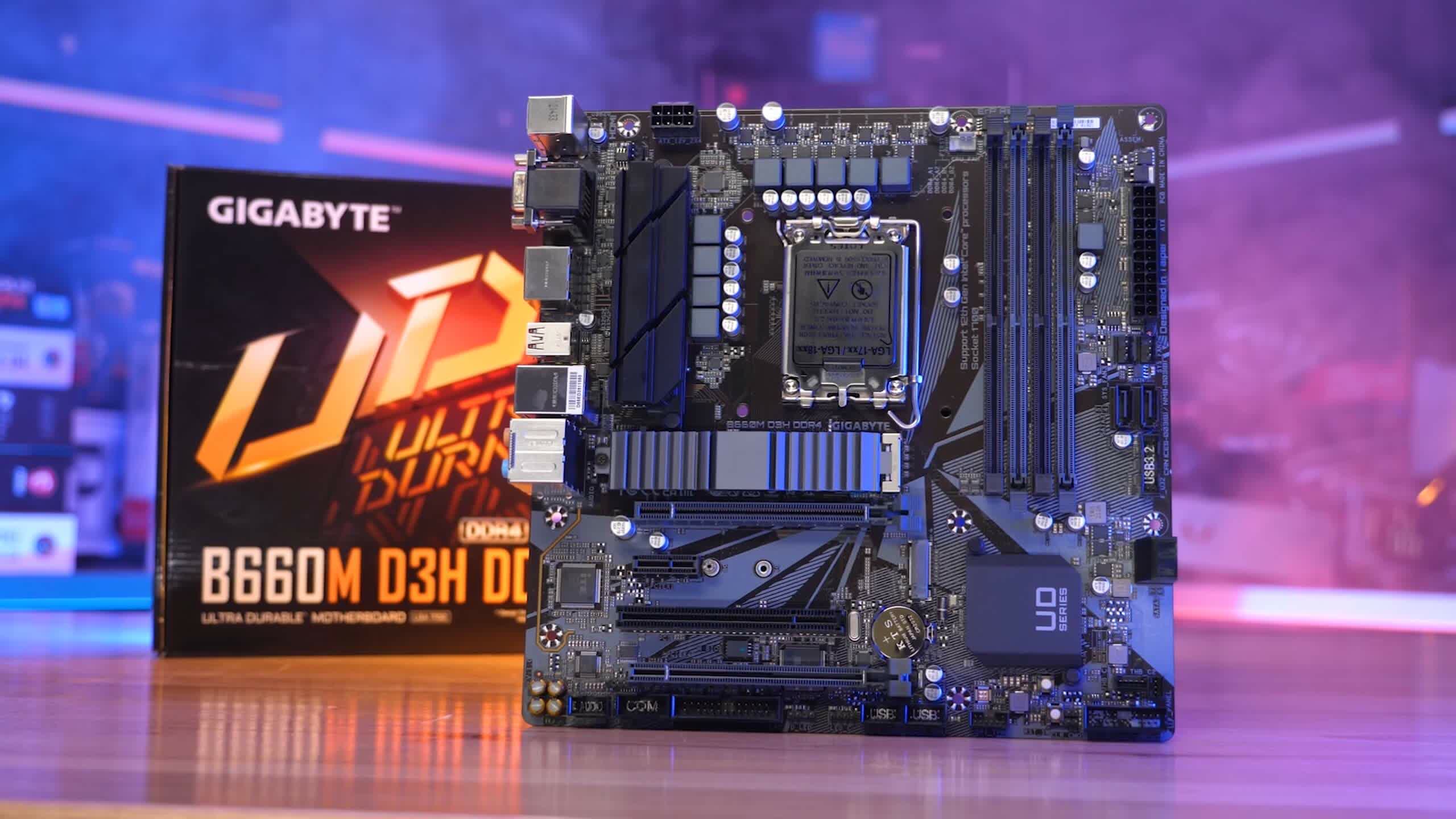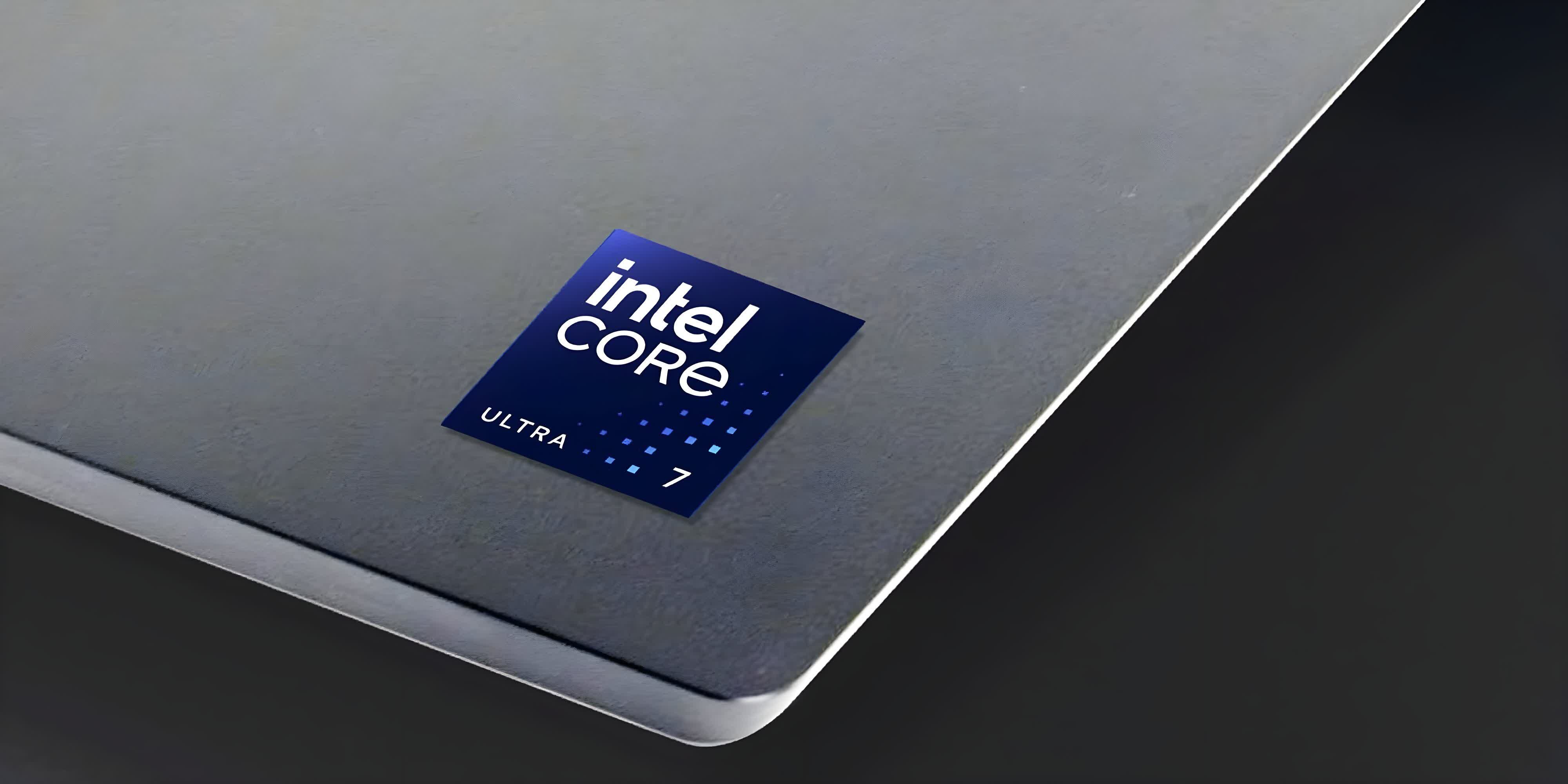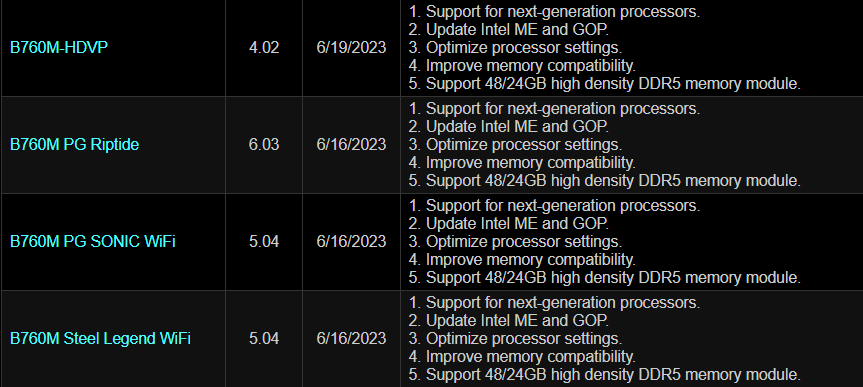Something to look forward to: Recent rumors suggest that a new line of Intel desktop processors will arrive later this year. While the company has not officially confirmed anything beyond laptop CPUs, recent BIOS updates from three motherboard manufacturers – Asus, Asrock, and Gigabyte – allude to next-generation processors, which for all practical purposes is as good as confirming the CPU refresh is coming.

These new BIOS updates refer to unannounced Intel desktop CPUs, preparing users to upgrade their processors without the need to replace their motherboards.
BIOS updates began appearing for Gigabyte B660, B760, and Z790 motherboards between late May and early June, mentioning support for the forthcoming Intel processors without naming them. Updates with similar titles emerged for Asrock B760 and Asus Z790 models last week. MSI has yet to follow suit.
The patch rollout seems somewhat uneven, as many Gigabyte Z790 and Asrock Z760 motherboards have yet to receive it. Owners of Asus, Asrock, or Gigabyte motherboards that support LGA1700 sockets, and who plan to upgrade their CPUs, should regularly check for new BIOS versions. Moreover, the Asus and Asrock patch notes recommend updating to the latest version of the Intel Management Engine.
The new processors in question could only be the rumored refresh of the 13th-generation Raptor Lake series, which Intel is said to be branding as the 14th-generation Core series. A reliable leaker suggests that the new unlocked CPUs will arrive in October, followed by the non-K versions before the close of 2023.
Most of the 14th-generation Raptor Lake processors are expected to feature more cores than their 13th-gen counterparts. While the upgrade might not be revolutionary, the BIOS updates confirm that owners of Alder Lake and Raptor Lake processors will have new options to choose from, without needing to replace their motherboards.

However, these refreshed chips may be the last series to support the LGA1700 socket. Current information suggests that the subsequent Arrow Lake processors will transition to the LGA1851 socket upon their release in late 2024 or early 2025.
Meanwhile, Intel recently confirmed the launch of Meteor Lake mobile CPUs later this year. These will feature a new branding scheme to replace the 15-year-old Core i3, i5, i7, and i9 labels. Meteor Lake will introduce two tiers of processors: Intel Core and Intel Core Ultra, each with 3, 5, 7, and 9 variants.
https://www.techspot.com/news/99128-asus-gigabyte-asrock-bios-updates-add-support-upcoming.html
